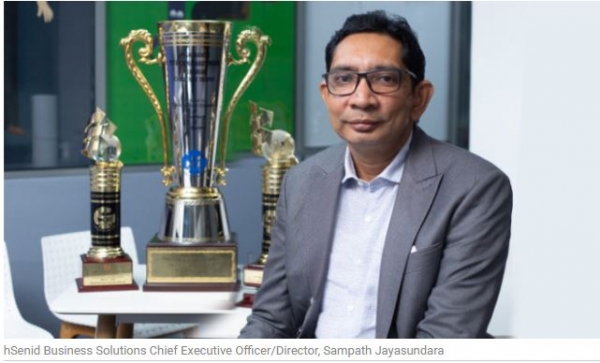hSenid Biz Solutions expands global reach
Sri Lanka’s premier enterprise IT company, hSenid, implemented a Government-wide interconnected, scalable Human Capital Management (HCM) System, connecting over 235 ministries and local agencies and over 450,000 officers in Uganda. hSenid’s latest partnership with the Government of Uganda is another milestone in its cap of international business, with this pioneer Sri Lankan enterprise IT company now present in 40 countries, serving over 1,300 clients.


















































